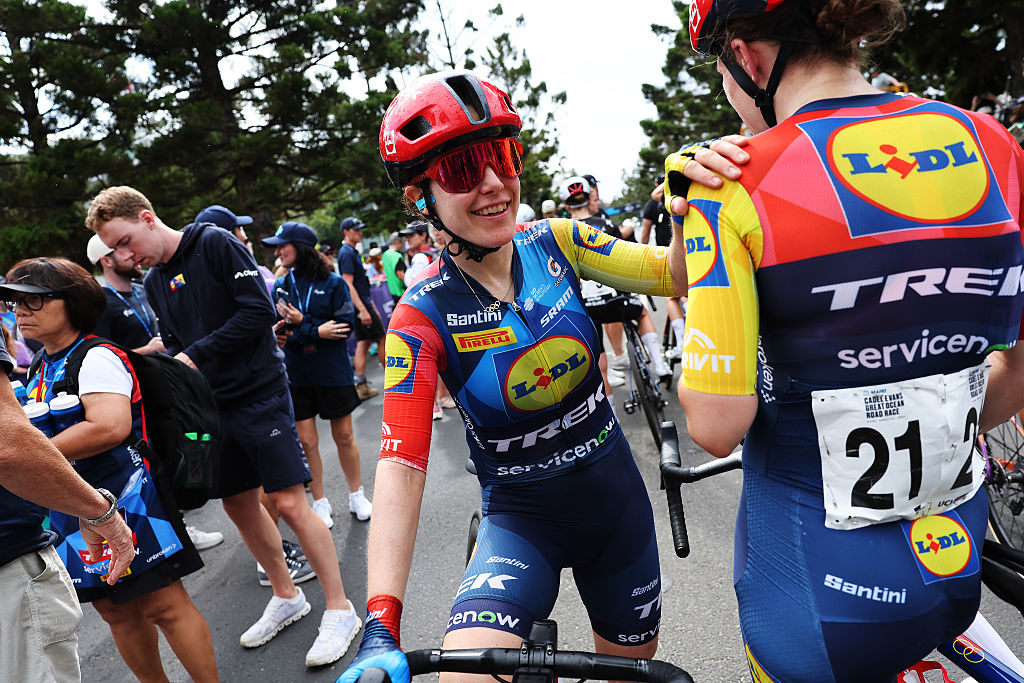David Lappartient elected UCI President
Frenchman beats Brian Cookson by 37 votes to 8
The latest race content, interviews, features, reviews and expert buying guides, direct to your inbox!
You are now subscribed
Your newsletter sign-up was successful
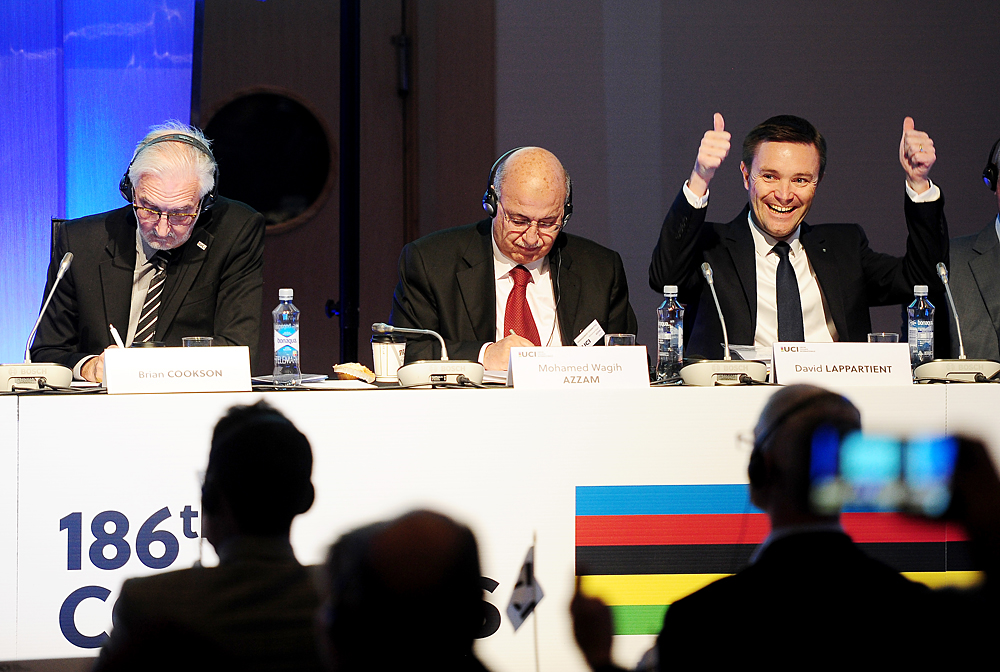
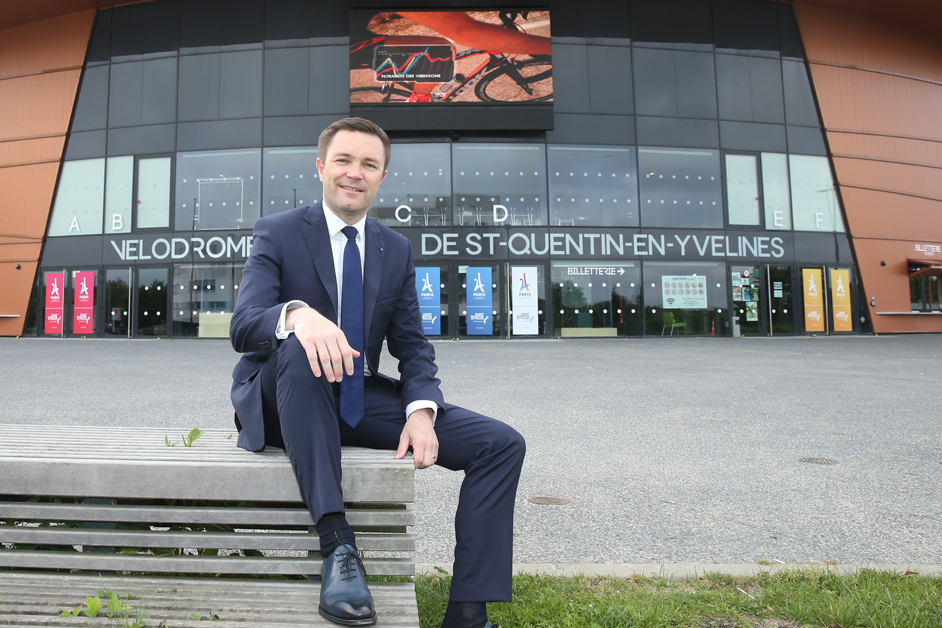
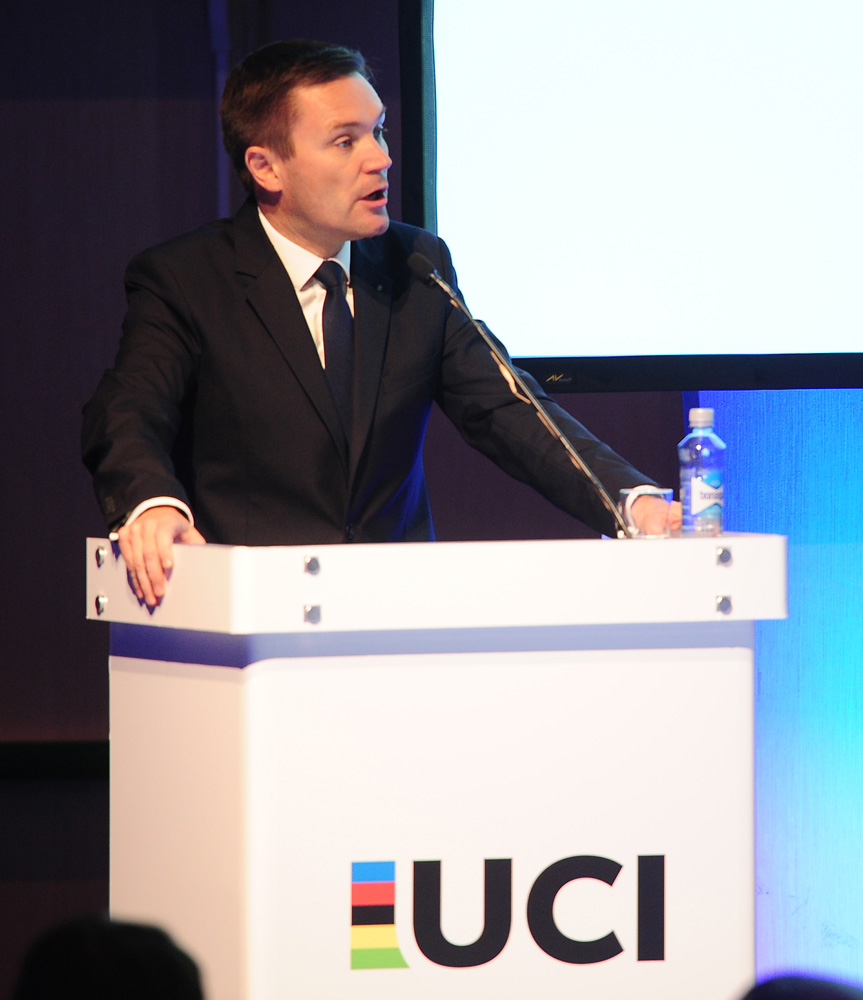
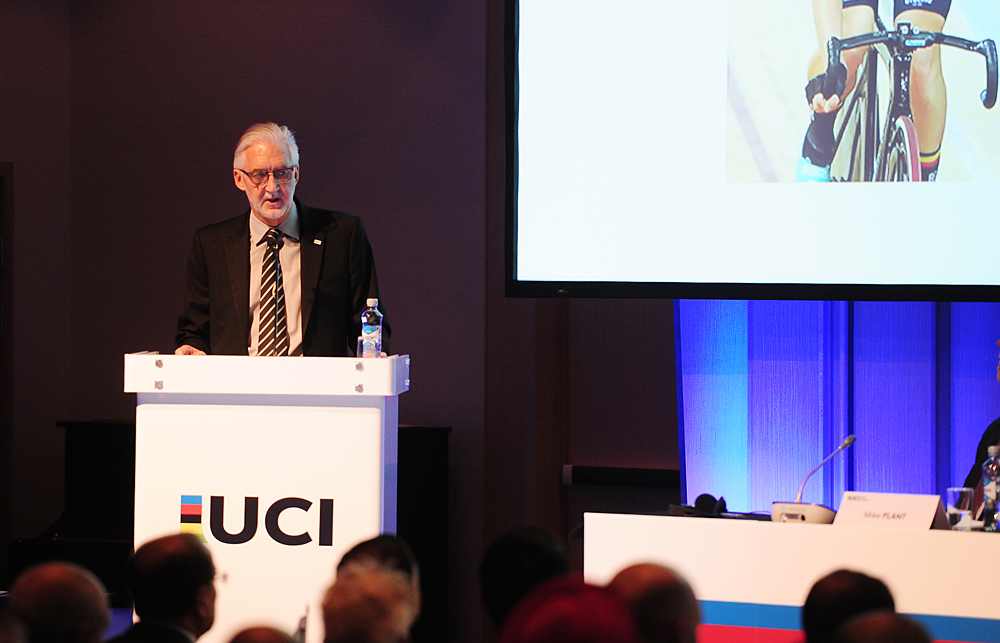
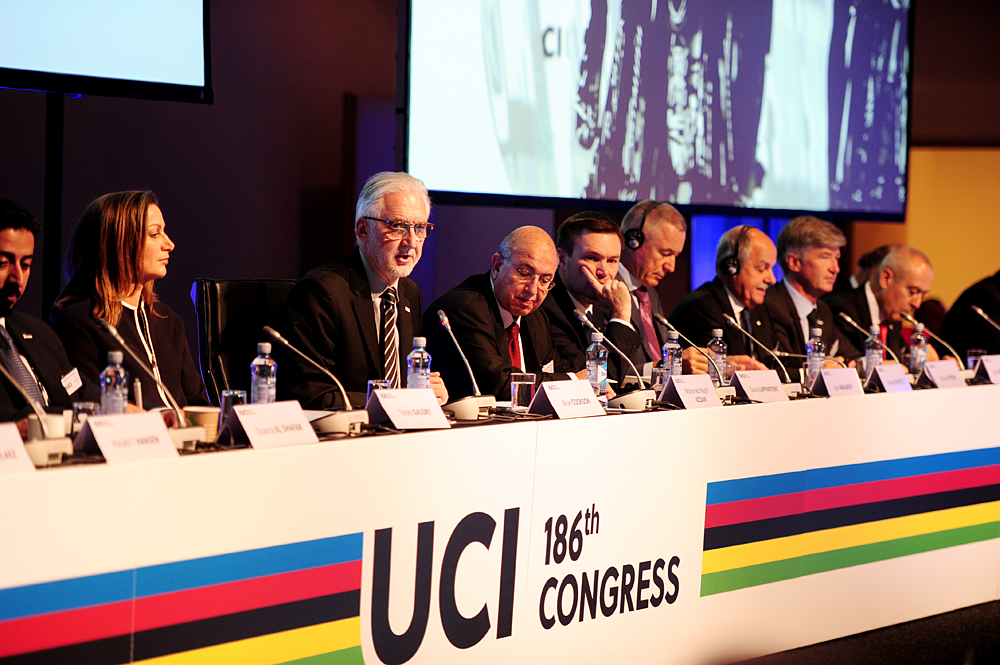
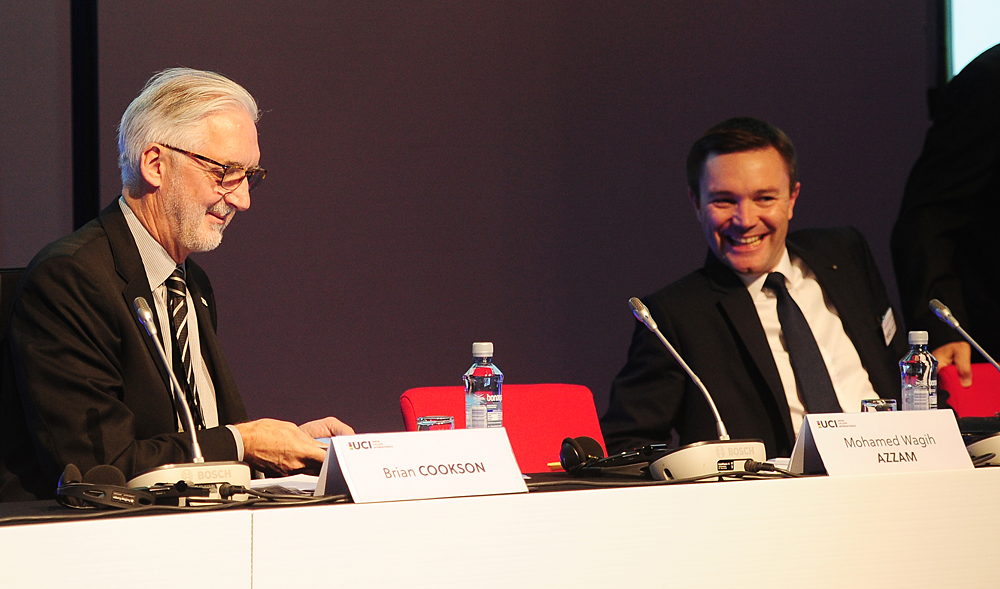
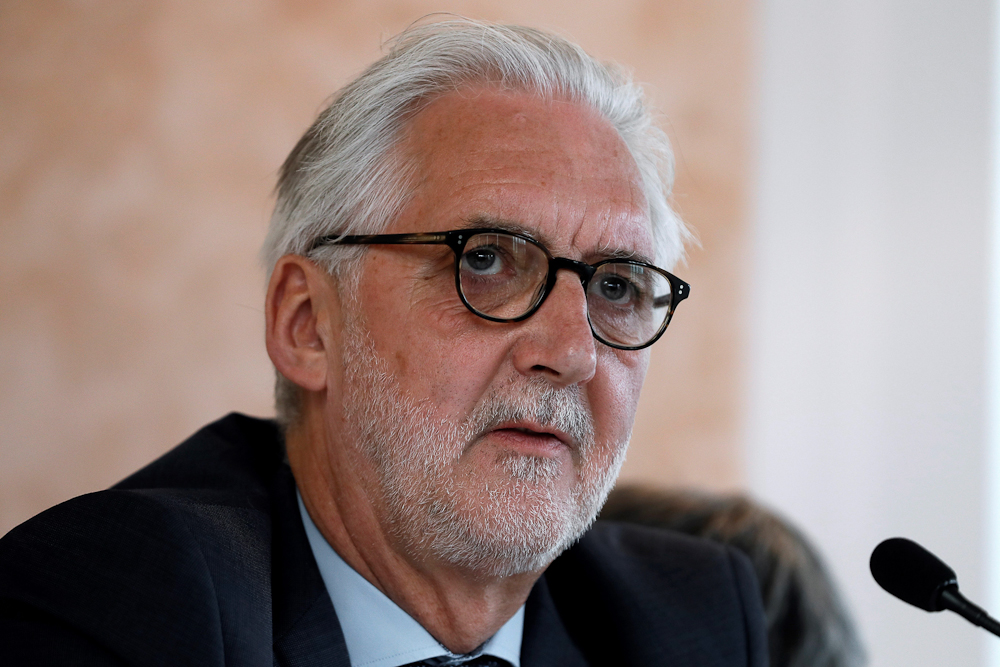
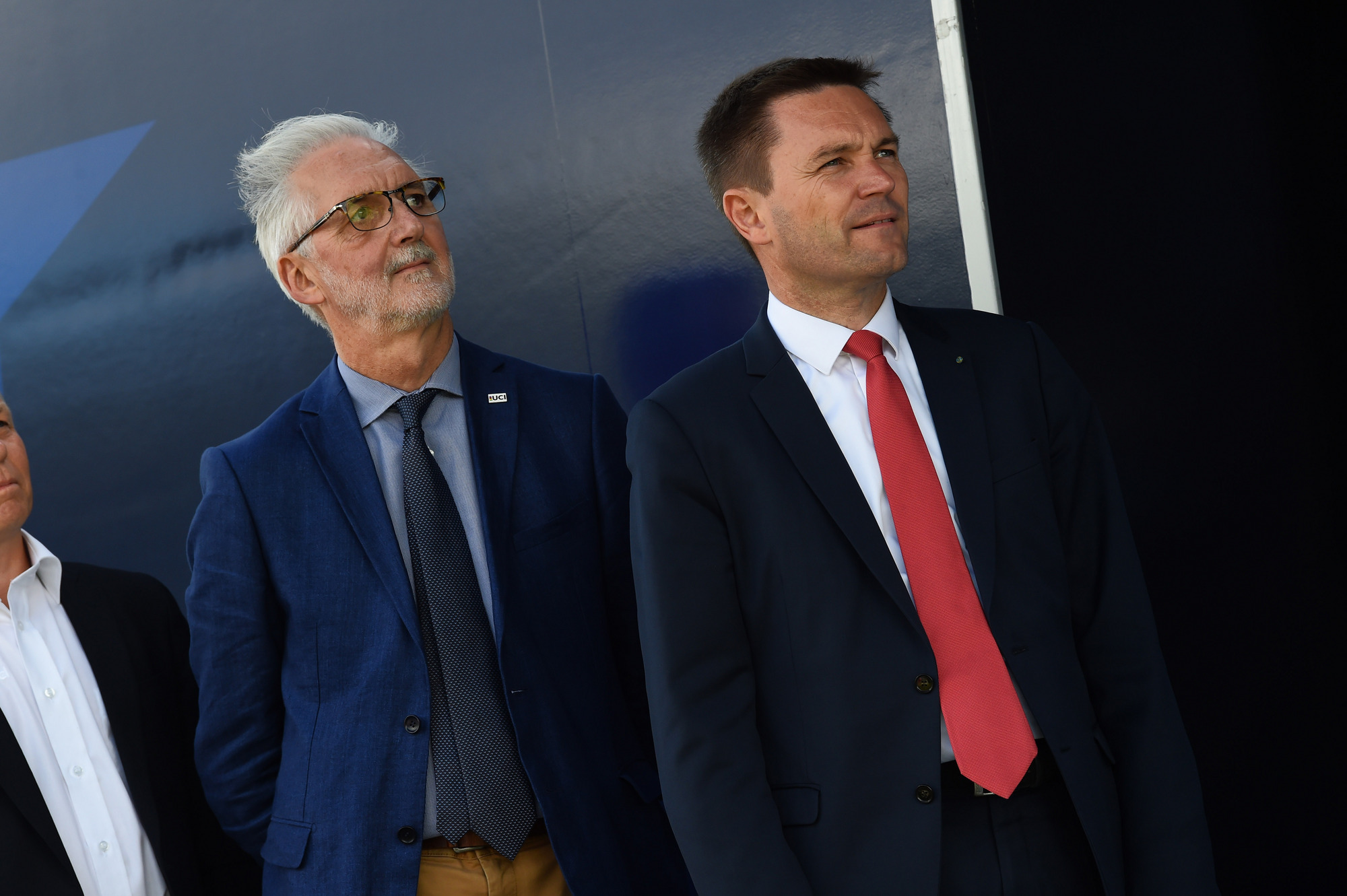
David Lappartient has won a huge majority to take the UCI presidency. The Frenchman defeated Brian Cookson 37-8 to end Cookson's four-year tenancy of the post. Both men came into Thursday's election with high hopes and were confident of winning a majority needed from the 45 voting delegates.
McQuaid calls Cookson a 'fraud', backs Lappartient in UCI elections
Lappartient denies involvement in McQuaid's support for UCI presidential vote
Cookson remains confident of winning UCI presidential election
Cookson versus Lappartient: A race too close to call?
Lappartient: I expected over 30 votes
Cookson: I expected to win but that's life, that's politics
UCI to scrap trade team time trial at World Championships
Behind the scenes at the UCI election and why Cookson really lost - Podcast
Cookson won the presidency four years ago in Florence, defeating Pat McQuaid 24-18, but has had a difficult four years in charge of the governing body. He is the first president to only serve one term.
The election took place at the 186th UCI Congress in Bergen and brought an end to a long campaign. On the eve of the election Cookson told Cyclingnews that he was confident of winning but of all the experts Cyclingnews spoke to only one had Cookson ahead in the polls, and they were from British Cycling.
Lobbying went on well into the night on Wednesday evening but Lappartient built up support from most of the confederations, especially in Europe where he led the European Cycling Union (UEC). Both candidates gave speeches on Thursday morning in which they outlined their manifestos, but before the vote one source told Cyclingnews that Lappartient had a 39-6 majority.
"Dear voting delegates, ladies and gentlemen, representatives of national federations, friends, I am deeply honoured to address my first presidential speech before you today. You just elected me as president of the Union Cycliste Internationale. I'm very grateful for your support and wish to thank you from the bottom of my heart," said Lappartient.
"It is a great responsibility, and I will endevour in the next four years of my presidency to be worthy of such trust and deliver my commitment to you. I'm delighted to see that my electors have come from all continents. The projects that I've proposed to the UCI and which I share with you seem to offer greater hope for the future of international cycling.
"I wish to greet my competitor Brian Cookson. I imagine his disappointment because I know his interest in our sport that he practices regularly. He will of course always be welcome at UCI events.
The latest race content, interviews, features, reviews and expert buying guides, direct to your inbox!
"Change generates fear. It's normal. However, I would like to reconfirm to UCI employees that I know their value and professionalism, and we need your expertise and commitment to work with me in delivering this four-year plan. As of Tuesday, I will be at the UCI headquarters in Aigle to meet each and every one of you, and begin working on what I have been elected to do."
Where did Cookson lose the election?
Cookson was elected in 2013 as something of a protest vote after the UCI was badly damaged by a number of difficult and embarrassing episodes. He was given a mandate to help rescue the sport's credibility and improve areas such as anti-doping and women's cycling.
While there were areas of success, Cookson was bogged down by the Cycling Independent Reform Commission (CIRC) report that was both expensive and long-winded. Cookson was forced to backtrack in several areas, including his stance on Astana and Roman Kreuziger after he called for all riders under investigation for doping infractions to be provisionally suspended.
At the same time, Lappartient was able to wield his influence with the UCI's road commission and at several times undermine Cookson's plans for progress with several race organisations, such as ASO.
Behind the scenes the UCI management board members grew tired of Cookson's introverted style, with several sources telling Cyclingnews that he lacked drive and that in several meetings he would simply pass the floor to Martin Gibbs, UCI Director General, and allow him to run meetings.
The role of Gibbs and his influence over Cookson apparently frustrated sections of the UCI, as traditional paths of communication were ignored, with indecision a major factor.
It's not yet clear how all the 45 delegates voted but the lack of support from Igor Makarov was also a factor. Four years ago the Russian backed Cookson and lobbied on his behalf in a bid to remove McQuaid after a falling-out over Katusha's WorldTour licence issues. This time around Makarov has taken more of a backseat and Lappartient has been able to target former supporters of Cookson and win them over.
In terms of campaigns, Lappartient's message appeared clear and concise and, although both men had similarities in terms of their manifestos, Cookson never got out of first gear – a failing that has perhaps dogged him since he was first elected. His repeated mantra of being a break from cycling's past had worn thin and his late attempt to liken Lappartient to McQuaid lacked clout and failed to land any significant damage.
Outside the election hall the post-mortem had already begun, with one strong Cookson supporter admitting to Cyclingnews that the British candidate's campaign never got going and was poorly managed. The consensus is that he failed to gather a single vote from Europe and that his limited support came from Asia and Oceania.
To subscribe to the Cyclingnews podcast, click here
Daniel Benson was the Editor in Chief at Cyclingnews.com between 2008 and 2022. Based in the UK, he joined the Cyclingnews team in 2008 as the site's first UK-based Managing Editor. In that time, he reported on over a dozen editions of the Tour de France, several World Championships, the Tour Down Under, Spring Classics, and the London 2012 Olympic Games. With the help of the excellent editorial team, he ran the coverage on Cyclingnews and has interviewed leading figures in the sport including UCI Presidents and Tour de France winners.

